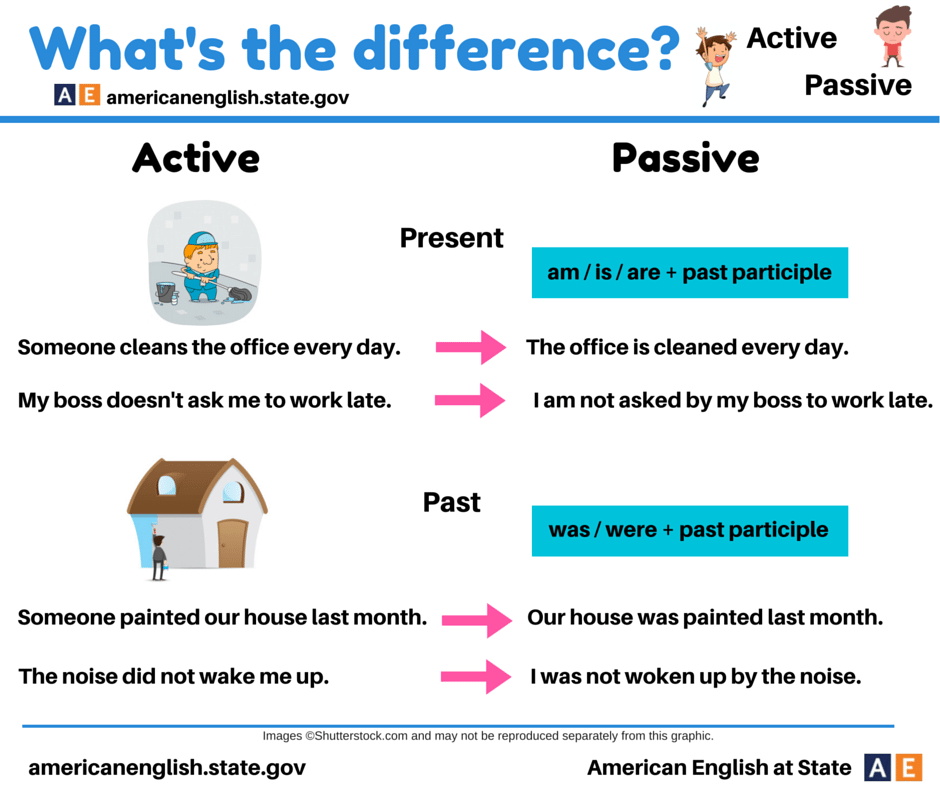
"was been spent" was his answer for one of the questions which should have been "was spent". I've been teaching EFL since 2004 and today I encountered a form of passive voice like "was been spent" during an after-exam chat with a student. Hi all and thank you in advance for your time and help (really needed), In fact, I'd say it's more common than the previous passive (where the direct object becomes the subject of the passive verb) with double object verbs.ĭoes that help make sense of this? Please let us know if you have other questions. It can seem a bit strange, but it's perfectly natural in English. What you saw in the book, however, is also correct when the indirect object is a person the indirect object can become the subject of the passive verb: 'Have you been given your letter of discharge ?' You can do the same thing when the verb has a direct and indirect object: 'Has your letter of discharge been given to you ?' (Notice it's 'has' and not 'have' because 'your letter of discharge' is singular.) (The brackets around 'by the doctor' show that this part of the sentence is optional it can be omitted.) For example, 'The doctor treated the patient' becomes 'The patient was treated '. When a verb has only a direct object, the direct object becomes the subject of the passive verb.

If that's the case, then key elements of the active sentence wouldn't make it into the passive version in real usage. One of the main reasons is for leaving out information. When exercises that involve transforming actives into passives are created, it's easy to lose sight of the fact that passives are used for very specific reasons. Though really in that case, I'd probably just leave out 'from a weapons manufacturer'. For example, if what's important is that he received payments (and not that they came from a weapons manufacturer), then the second one might be better. If I were writing a text that needed to include one or the other of these sentences, I'd choose the first one unless there were some good reason not to. Even if it were, in almost any situation, clearer sentences beat sentences that are ostensibly more grammatical, at least in my book. In other words, I don't think it's an adverbial here. I'm not completely sure, but I'd probably call 'from a weapons manufacturer' a prepositional phrase that modifies 'Payments' (the head of the noun phrase) and therefore sits under it. I agree that the first sentence is much easier to understand. GapFillDragAndDrop_MTY0MjQ= Active and passive voice 7 The meeting is scheduled to start at seven. John has been asked to make a speech at the meeting. Some verbs which are very frequently used in the passive are followed by the to-infinitive: be supposed to ReorderingHorizontal_MTY0MjI= Active and passive voice 5 We can use phrasal verbs in the passive: Active She was sent a cheque for a thousand euros. Someone sent her a cheque for a thousand euros. We can use the indirect object as the subject of a passive verb: Active We sometimes use the verb get with a past participle to form the passive:īe careful with that glass. The doors are going to be locked at ten o'clock. The passive infinitive is made up of to be with a past participle: GapFillDragAndDrop_MTY0MTk= Active and passive voice 3 GapFillDragAndDrop_MTY0MTg= Active and passive voice 2 If we want to show the person or thing doing the action, we use by:

Passive forms are made up of the verb be with a past participle: Subject Transitive verbs have both active and passive forms: Active


 0 kommentar(er)
0 kommentar(er)
